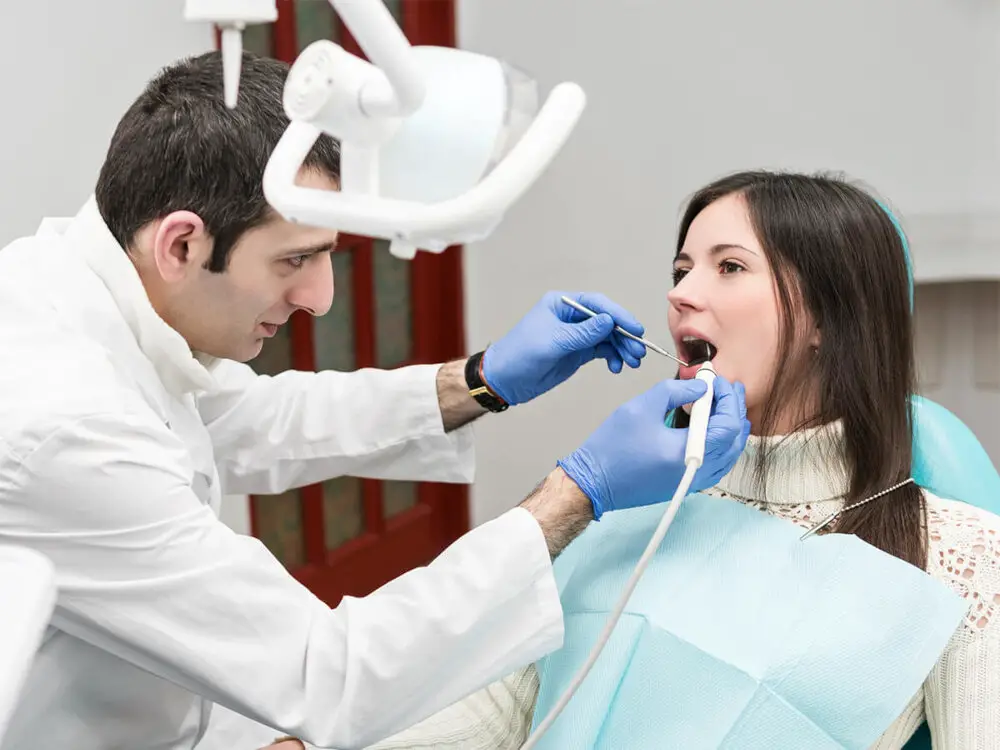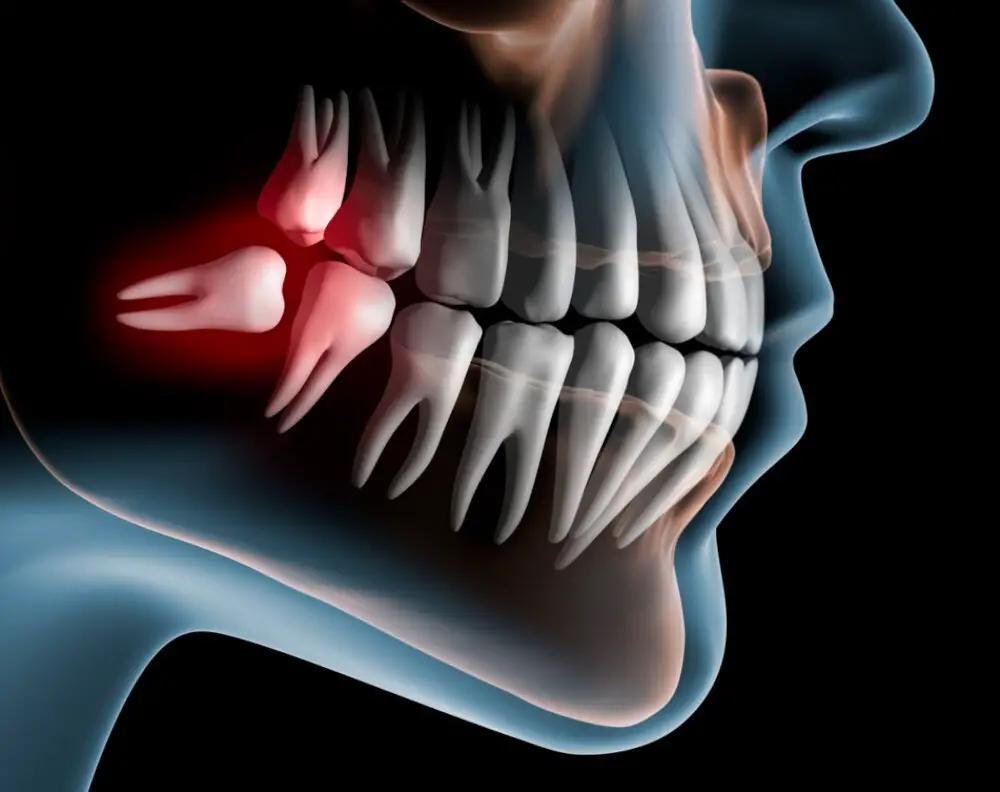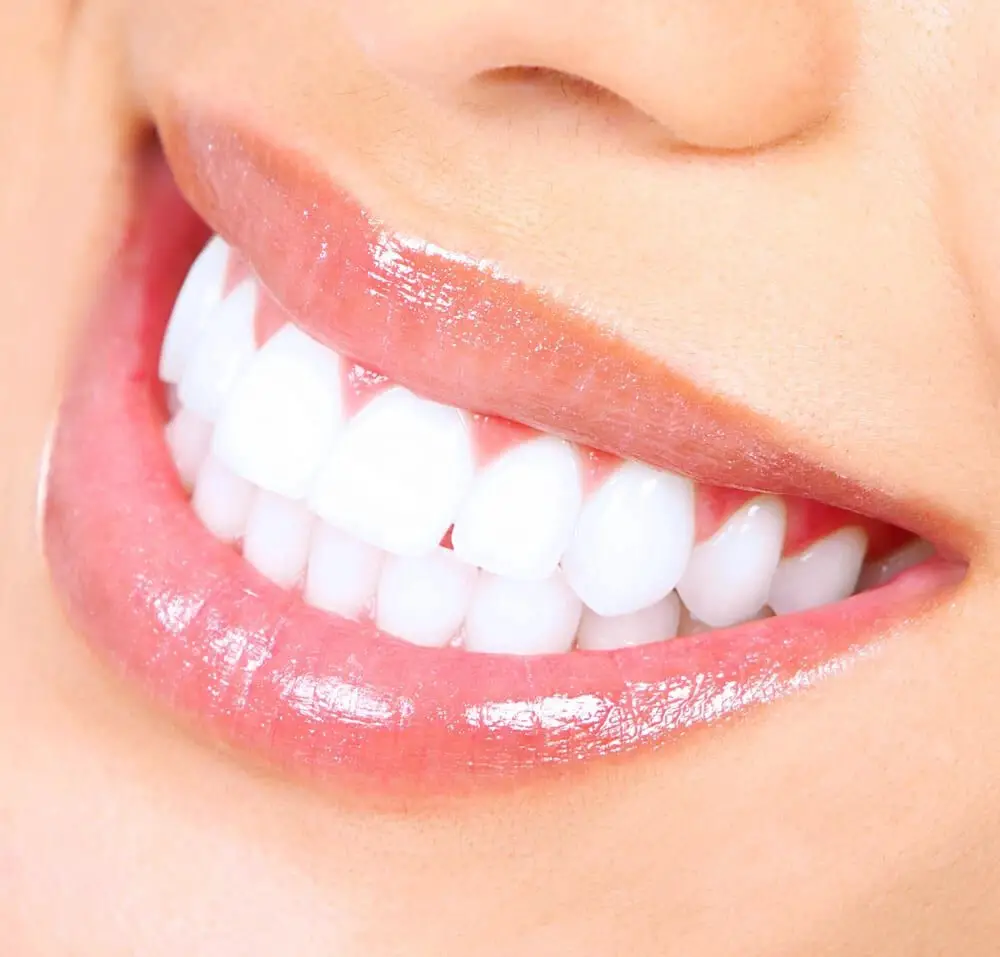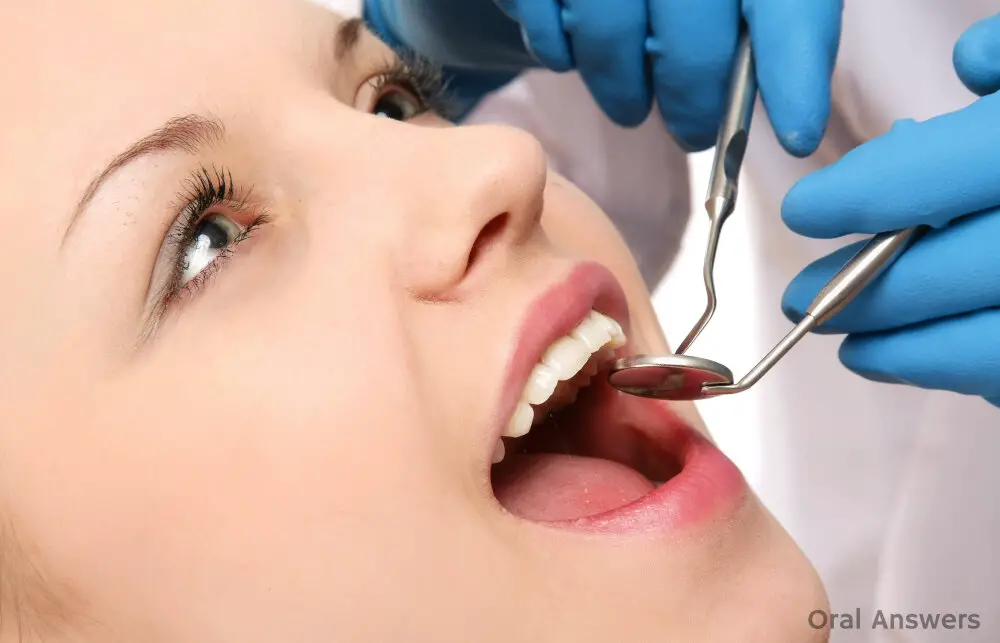Why Are My Dog’s Teeth Chattering? Understanding the Causes and Solutions

As a dog owner, it can be concerning to witness your furry companion’s teeth chattering. You may wonder if it’s a sign of discomfort or an underlying health issue. However, before jumping to conclusions, it’s essential to understand that there are various reasons why a dog’s teeth may chatter. Some are harmless, while others require immediate attention from a veterinarian. One of the most common reasons for a dog’s teeth to chatter is due to the cold. Just as humans shiver when they feel chilly, dogs may also experience involuntary muscle contractions that cause their teeth to chatter. However, if your dog’s teeth are chattering in warm temperatures, there may be an underlying health issue that needs to be addressed. Understanding the causes and solutions for your dog’s teeth chattering can help you provide them with the best care possible.
Teeth chattering in dogs is a common phenomenon that indicates a range of emotions, from excitement to anxiety, fear, or stress. It is a repetitive movement of the jaw that produces a clattering sound. The teeth chattering is usually accompanied by other physical signs such as trembling, dilated pupils, or a tense body posture. Some dogs may also drool, pant, or lick excessively when their teeth are chattering. While teeth chattering is not necessarily a cause for alarm, it is essential to understand the underlying causes and address them accordingly. In some cases, teeth chattering may be a sign of an underlying medical condition that requires veterinary attention.
Understanding the causes and solutions of any problem is crucial, especially when it comes to our furry friends. In the case of a dog’s teeth chattering, it could be caused by various reasons, including anxiety, excitement, or dental problems. By understanding the underlying causes, we can address the issue effectively and provide our pets with the necessary care and attention. For instance, if the teeth chattering is a result of anxiety, we can try to soothe our dogs by giving them calming treats or spending more time with them. On the other hand, if it is due to dental problems, we can take them to the vet for a check-up and appropriate treatment. Therefore, understanding the causes and solutions of our dog’s teeth chattering can help ensure their overall well-being and happiness.
Normal Causes of Teeth Chattering in Dogs

Dogs are known for their unique ways of communicating with their owners, and teeth chattering is one of them. While it may seem like a sign of distress, there are normal causes of teeth chattering in dogs that should not cause alarm. One of the most common reasons for teeth chattering is excitement or anticipation. This can happen when a dog is waiting for a treat or a walk, or when they see their favorite toy. The excitement causes their muscles to tense up, leading to teeth chattering. In these cases, teeth chattering should not last for long, and it should stop once the dog gets what they are waiting for. Another normal cause of teeth chattering in dogs is the cold. Just like humans, dogs can experience the shivers when they are cold, and this can lead to teeth chattering. This is especially common in smaller dog breeds or dogs with thin fur. If the teeth chattering is caused by the cold, it should stop once the dog warms up. Owners can provide their dogs with a warm blanket or a sweater to keep them warm, especially during the colder months. It is important to note that teeth chattering caused by the cold can also be a sign of hypothermia, which is a medical emergency. If the teeth chattering persists even after the dog has been warmed up, owners should seek veterinary attention immediately.
Cold temperature is one of the most common causes of teeth-chattering in dogs. When the temperature drops, dogs may experience discomfort, which can lead to shivering and chattering of their teeth. This is because dogs have a higher body temperature than humans, and their bodies are designed to maintain a consistent internal temperature. When the temperature drops, their bodies work to keep their core temperature up, which can result in teeth-chattering. If your dog is shivering and chattering its teeth, it’s important to provide them with warmth and comfort to help them regulate their body temperature. This can include providing warm blankets and clothing, keeping them indoors in a heated environment, or using a heating pad to help them stay warm.
Excitement is a common emotion that dogs experience, and it can manifest in a variety of ways, including teeth chattering. When a dog is excited, their body may become tense, their tail may wag rapidly, and they may even jump up and down. Dogs may become excited for a variety of reasons, such as seeing their favorite human or getting ready for a walk. It’s important to understand your dog’s body language and behavior when they’re excited to ensure they don’t become overly stimulated or anxious. If your dog’s teeth chattering is accompanied by other signs of stress or discomfort, it’s best to consult with a veterinarian to rule out any underlying health issues.
Anxiety and fear are common emotional states that can cause a variety of physical reactions, including teeth chattering in dogs. Anxiety can be caused by many factors, such as loud noises, unfamiliar surroundings, or separation from their owner. Fear can be the result of a traumatic event or a specific trigger, such as other dogs or people. Both anxiety and fear can be debilitating for dogs, causing them to exhibit nervous behaviors and physical symptoms like chattering teeth. Understanding the underlying causes of these emotional states and working to address them can help alleviate your dog’s discomfort and promote better overall health and wellbeing.
Pain or discomfort can manifest in a variety of ways, and teeth chattering is just one of the many possible symptoms. Dogs may experience discomfort for a number of reasons, including dental issues, injury, or illness. If your dog’s teeth are chattering, it is important to observe their behavior and look for other signs of pain or discomfort, such as limping, whining, or decreased appetite. Depending on the cause of your dog’s discomfort, various solutions may be available, including medication, dietary changes, or medical treatment. As a responsible pet owner, it is important to address your dog’s discomfort promptly to ensure their health and happiness.
Unfortunately, hunger is a common issue that many dogs face. It can be caused by a variety of factors, such as not being fed enough, not being fed on a regular schedule, or simply having a fast metabolism. When a dog is hungry, they may exhibit a range of behaviors, such as whining, begging, or even stealing food. It’s important for owners to pay attention to their dog’s eating habits and ensure they are receiving a balanced and nutritious diet. If hunger persists despite adequate feeding, it may be necessary to consult with a veterinarian to rule out any underlying health conditions.
Abnormal Causes of Teeth Chattering in Dogs

Teeth chattering in dogs can be a normal reaction to cold temperatures, excitement, or anxiety. However, in some cases, it can also be a sign of an underlying health issue. Abnormal causes of teeth chattering in dogs can include neurological disorders, dental problems, and pain. For instance, dogs suffering from seizures or tremors may experience teeth chattering as a symptom. Additionally, dogs with dental issues such as tooth decay or gum disease may also experience teeth chattering due to the discomfort caused by their condition. Pain is another potential cause of teeth chattering in dogs. Dogs experiencing pain due to injury or illness may exhibit teeth chattering as a way to cope with their discomfort. It is important for pet owners to pay attention to their dog’s teeth chattering behavior and consult with a veterinarian if it is persistent or accompanied by other symptoms. Early detection and treatment of underlying health issues can help prevent more serious complications and improve the quality of life for the dog. Treatment options may include medication, dental procedures, or behavioral therapy, depending on the underlying cause of the teeth chattering. Pet owners can also help alleviate their dog’s teeth chattering by providing a warm and comfortable environment, reducing stress and anxiety triggers, and providing regular dental care. By understanding the causes and solutions of teeth chattering in dogs, pet owners can help their furry friends live happy and healthy lives.
Dental problems in dogs are a common and serious issue that can lead to discomfort, pain, and even systemic infections. Dogs can suffer from cavities, gum disease, tooth fractures, and abscesses, among other dental issues. These problems can be caused by poor dental hygiene, genetic predisposition, or underlying health conditions. Symptoms of dental problems in dogs include bad breath, swollen gums, loss of appetite, reluctance to eat, and tooth sensitivity. To prevent dental problems and promote good oral health, dog owners should regularly brush their dog’s teeth, provide dental chews and toys, and schedule routine dental check-ups with their veterinarian.
Neurological disorders are conditions that affect the nervous system, which includes the brain, spinal cord, and nerves. These disorders can cause a wide range of symptoms, such as tremors, seizures, and loss of coordination. Some common neurological disorders in dogs include epilepsy, degenerative myelopathy, and vestibular disease. These conditions can be caused by genetic factors, infections, or injury to the nervous system. It is important to seek veterinary care if you suspect your dog may be suffering from a neurological disorder, as early diagnosis and treatment can improve their outcome and quality of life.
Poisoning is a serious and potentially life-threatening condition that can affect dogs. It occurs when a dog ingests a toxic substance, such as household chemicals, poisonous plants, medications, or food, that can cause harm to the body. Symptoms of poisoning in dogs may vary depending on the type and amount of toxin ingested, but can include vomiting, diarrhea, seizures, difficulty breathing, weakness, and even death. It is important to seek immediate veterinary care if you suspect your dog has been poisoned, as early treatment can improve the chances of a full recovery. Preventing poisoning in dogs involves keeping hazardous substances out of reach, properly storing medications and chemicals, and being aware of plants that are toxic to dogs.
Metabolic disorders refer to a group of medical conditions that affect the metabolism of an organism, including dogs. These disorders can occur due to genetic mutations, abnormalities in enzymes, or deficiencies in essential nutrients required for normal metabolic function. Some common metabolic disorders in dogs include diabetes, hypoglycemia, and thyroid disorders. These conditions can lead to a range of symptoms, including weight gain or loss, fatigue, weakness, and changes in appetite. It is important to diagnose and treat these disorders promptly to prevent long-term complications and improve the quality of life for affected dogs.
Medication is often prescribed to alleviate various medical conditions in dogs, but it can also come with a range of side effects that owners should be aware of. Some common side effects of medication in dogs include lethargy, loss of appetite, vomiting, diarrhea, and allergic reactions. In some cases, medication can also cause more serious side effects such as liver or kidney damage. It is important for owners to carefully read medication instructions and to monitor their dog’s behavior and condition while taking medication. If any unusual symptoms or side effects occur, the owner should contact their veterinarian immediately for advice and guidance.
Solutions for Teeth Chattering in Dogs

Teeth chattering in dogs can be caused by a variety of factors, including anxiety, excitement, fear, or even dental problems. It’s important to pinpoint the underlying cause of your dog’s teeth chattering in order to identify the best course of action. One solution for teeth chattering in dogs is to address any underlying anxiety or stress. This can be done through training, behavior modification, or the use of natural remedies like calming essential oils or supplements. Regular exercise and socialization can also help reduce anxiety and promote relaxation in dogs. Another solution for teeth chattering in dogs is to provide proper dental care. Regular dental check-ups and cleanings can help prevent dental problems that can lead to teeth chattering. In some cases, dental issues like gum disease or tooth decay may need to be treated with medication or surgery. Additionally, providing your dog with chew toys and bones can help keep their teeth clean and healthy, reducing the likelihood of dental problems and teeth chattering. It’s important to consult with a veterinarian to determine the best dental care plan for your dog.
Providing a warm and comfortable environment for your furry friend is crucial to ensure their overall well-being and happiness. Dogs are highly sensitive to changes in temperature, and a chilly environment can cause them to shiver and their teeth to chatter. This can be especially true for smaller breeds or those with short hair. Therefore, it’s essential to provide them with cozy blankets, warm beds, and a comfortable living space. Additionally, keeping your dog’s environment clean and clutter-free is equally important as it can prevent them from feeling anxious or stressed. By creating a warm and comfortable environment, you can help your dog feel secure and content, ultimately reducing their chances of experiencing chattering teeth.
Reduce anxiety and fear through training and socialization is crucial for dogs to live a happy and healthy life. Socialization exposes dogs to different people, animals, and environments, which helps them become more comfortable and less fearful in new situations. It also teaches them how to interact appropriately with others, reducing the likelihood of aggressive behavior. Training helps dogs understand what is expected of them, providing structure and routine that can reduce anxiety. Additionally, positive reinforcement training can help build a strong bond between the dog and their owner, which can provide a sense of security and comfort for the dog. By investing time and effort into training and socialization, owners can help their dogs feel more confident and secure, which can reduce teeth chattering and other anxiety-related behaviors.
If your dog’s teeth are chattering, it could be a sign of an underlying medical condition. It’s important to get to the root of the problem by taking your furry friend to the vet for a check-up. Conditions such as dental disease, pain, anxiety, and neurological disorders can all cause teeth chattering in dogs. Once the underlying condition is diagnosed, treatment can be prescribed. Treatment options may include dental cleaning, medication, behavior modification, or surgery. By treating the underlying medical condition, you can help alleviate your dog’s discomfort and ensure that they are healthy and happy.
Feeding your dog a balanced and nutritious diet is essential for their overall health and well-being. A balanced diet should include high-quality protein sources, such as meat, fish, and poultry, as well as complex carbohydrates, healthy fats, vitamins, and minerals. Providing your dog with a nutritious diet can help prevent dental issues, such as tooth decay and gum disease, which can cause teeth chattering. It can also improve their immune system, energy levels, and cognitive function. Make sure to consult with your veterinarian to determine the best diet plan for your dog based on their age, breed, and any existing health conditions.
Regular dental checkups and cleaning are crucial for maintaining your dog’s oral health. Just like humans, dogs can suffer from dental problems such as tartar buildup, gum disease, and tooth decay. These issues can cause discomfort, pain, and even lead to more serious health problems if left untreated. During a dental checkup, a veterinarian can examine your dog’s teeth and gums and identify any potential issues that need attention. Regular cleanings can also help remove plaque and tartar buildup, preventing the development of dental problems in the first place. Investing in your dog’s dental health can lead to a happier, healthier pet with a brighter smile.
When to Seek Veterinary Attention

When it comes to our furry companions, it is important to keep an eye out for any signs of discomfort or unusual behavior. Teeth chattering in dogs can be a sign of various underlying health issues such as dental problems, pain, and anxiety. If your dog’s teeth chattering is accompanied by other symptoms like trembling, difficulty walking, vomiting, or loss of appetite, it is crucial to seek veterinary attention immediately. These symptoms could indicate a more serious condition such as seizures or poisoning. In addition, if your dog’s teeth chattering persists for more than a few minutes or occurs frequently, it is recommended to schedule a check-up with your veterinarian. A thorough examination can help identify any underlying causes and provide appropriate treatment. Dental problems, for example, can lead to infections and other complications if left untreated. Early detection and treatment can prevent further damage and discomfort for your furry friend. Overall, it is important to be proactive in monitoring your dog’s behavior and seeking veterinary attention when necessary to ensure their health and wellbeing.
Persistent teeth chattering in dogs can be a sign of various underlying conditions, and it is essential to identify the cause to provide appropriate treatment. One of the most common reasons for teeth chattering is anxiety or fear, which can be triggered by loud noises, unfamiliar environments, or even a visit to the vet. Other possible causes include dental problems, such as a toothache or gum disease, or neurological issues, such as seizures or tremors. In some cases, teeth chattering may also be a symptom of pain or discomfort, particularly in older dogs with arthritis or other joint problems. Regardless of the cause, seeking veterinary advice is crucial to ensure that your furry companion receives the necessary care and attention.
In addition to teeth chattering, there may be other symptoms present that can help identify the underlying cause. Some dogs may exhibit excessive drooling, lip licking or smacking sounds. Others may have difficulty eating or refuse to eat altogether. In severe cases, dogs may experience seizures or loss of consciousness. It is important to observe your dog’s behavior and take note of any other symptoms present, as this can help your veterinarian make a proper diagnosis and provide appropriate treatment.
Abrupt onset of teeth chattering in dogs can be a sign of various underlying medical conditions, such as dental problems, neuromuscular disorders, or pain. However, it can also indicate emotional distress, anxiety, or fear. Dogs may exhibit teeth chattering when they are exposed to new or stressful situations, such as loud noises, unfamiliar people or animals, or visits to the veterinarian. In some cases, teeth chattering can be a response to cold temperatures or a way to release excess energy. Therefore, it is important for pet owners to observe their dog’s behavior and consult with a veterinarian if the teeth chattering persists or is accompanied by other symptoms.
A sudden change in behavior can be a sign that something is wrong with your dog. For instance, if you notice your dog’s teeth chattering, it could be a symptom of anxiety, fear, or pain. Chattering teeth can also indicate that your dog is feeling cold or has a dental problem. Therefore, it’s essential to observe your dog’s overall behavior and look for other signs that may suggest an underlying issue. If you notice any other unusual behavior or symptoms, it’s best to consult with your veterinarian. They can help identify the underlying cause of the chattering teeth and recommend the appropriate treatment or solution.
If you’re a dog owner, you may have noticed your furry friend’s teeth chattering on different occasions. Although it may seem harmless, teeth chattering can be a sign of an underlying issue. The causes of teeth chattering in dogs can be normal, such as when they are cold or excited, or abnormal, such as when they are in pain or experiencing anxiety. Normal teeth chattering usually stops once the dog is warm or calm, but abnormal teeth chattering can be a persistent issue that requires attention. Understanding the causes and solutions of teeth chattering in dogs can help you determine whether it’s a normal behavior or if your pet needs medical attention.
Understanding the causes and solutions of your dog’s teeth chattering can significantly improve their health and wellbeing. Teeth chattering in dogs can be a sign of various underlying issues, including dental pain, anxiety, cold weather, and excitement. Identifying the root cause of the problem can help you take the necessary steps to address the issue. Some solutions to reduce teeth chattering in dogs include providing them with a comfortable and warm environment during cold weather, regular dental care, proper exercise, and training to reduce anxiety. With proper care and attention, your furry friend can enjoy healthy teeth and a happy life.
If you observe your furry friend’s teeth chattering, it is a sign of concern that should not be overlooked. Teeth chattering in dogs can indicate several underlying health issues such as pain, anxiety, or dental problems. To ensure that your dog receives proper diagnosis and treatment, it is essential to seek veterinary attention. Neglecting your dog’s teeth chattering can exacerbate the underlying health problem, leading to severe complications that require expensive medical treatment. Therefore, it is crucial to take your dog to a vet to identify the underlying cause and find appropriate solutions to improve their overall health and well-being.
Conclusion

In conclusion, understanding the causes and solutions for your dog’s teeth chattering can help you better care for your furry friend’s health and wellbeing. Whether it’s due to anxiety, dental issues, or a medical condition, it’s important to address the underlying cause and seek proper treatment. Regular dental check-ups, a healthy diet, and providing a comfortable and stress-free environment can also help prevent teeth chattering in dogs. As responsible pet owners, it’s our duty to ensure that our furry friends receive the best possible care, and by being aware of their behavior and needs, we can help them lead happy and healthy lives.






